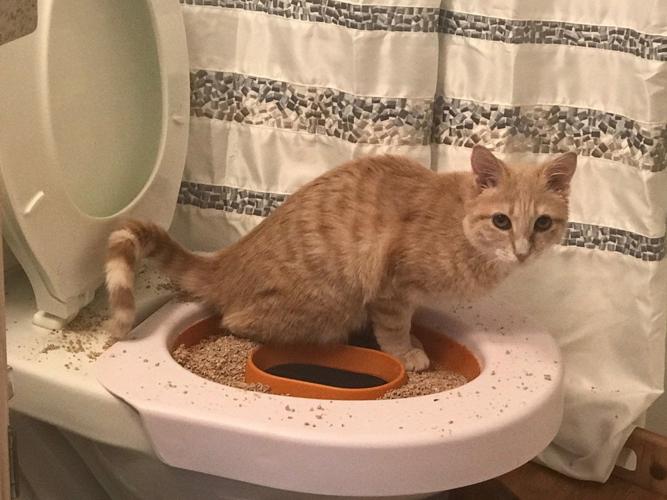Reasons You Shouldn't Flush Cat Poop Down Your Toilet - Preserve Your Plumbing Health
Reasons You Shouldn't Flush Cat Poop Down Your Toilet - Preserve Your Plumbing Health
Blog Article
What're your opinions regarding Don’t flush cat feces down the toilet?

Introduction
As feline owners, it's vital to bear in mind just how we get rid of our feline close friends' waste. While it might seem convenient to flush feline poop down the bathroom, this method can have damaging repercussions for both the setting and human health.
Alternatives to Flushing
Luckily, there are much safer and a lot more responsible means to get rid of cat poop. Think about the complying with options:
1. Scoop and Dispose in Trash
The most common technique of disposing of feline poop is to scoop it into a biodegradable bag and toss it in the trash. Make certain to utilize a specialized litter scoop and dispose of the waste promptly.
2. Usage Biodegradable Litter
Select naturally degradable feline litter made from products such as corn or wheat. These trashes are environmentally friendly and can be securely disposed of in the trash.
3. Hide in the Yard
If you have a yard, take into consideration burying pet cat waste in a designated location away from vegetable yards and water sources. Make certain to dig deep enough to stop contamination of groundwater.
4. Install a Pet Waste Disposal System
Purchase a pet dog garbage disposal system specifically developed for feline waste. These systems utilize enzymes to break down the waste, reducing odor and ecological influence.
Health and wellness Risks
In addition to ecological worries, flushing pet cat waste can also posture health and wellness threats to humans. Feline feces may consist of Toxoplasma gondii, a bloodsucker that can cause toxoplasmosis-- a possibly extreme illness, especially for pregnant ladies and people with weakened body immune systems.
Environmental Impact
Flushing feline poop presents hazardous pathogens and bloodsuckers right into the water system, presenting a significant risk to marine communities. These pollutants can negatively affect aquatic life and compromise water high quality.
Final thought
Liable pet ownership extends beyond providing food and sanctuary-- it additionally entails appropriate waste administration. By refraining from purging feline poop down the toilet and opting for different disposal approaches, we can reduce our environmental impact and safeguard human wellness.
Why Can’t I Flush Cat Poop?
It Spreads a Parasite
Cats are frequently infected with a parasite called toxoplasma gondii. The parasite causes an infection called toxoplasmosis. It is usually harmless to cats. The parasite only uses cat poop as a host for its eggs. Otherwise, the cat’s immune system usually keeps the infection at low enough levels to maintain its own health. But it does not stop the develop of eggs. These eggs are tiny and surprisingly tough. They may survive for a year before they begin to grow. But that’s the problem.
Our wastewater system is not designed to deal with toxoplasmosis eggs. Instead, most eggs will flush from your toilet into sewers and wastewater management plants. After the sewage is treated for many other harmful things in it, it is typically released into local rivers, lakes, or oceans. Here, the toxoplasmosis eggs can find new hosts, including starfish, crabs, otters, and many other wildlife. For many, this is a significant risk to their health. Toxoplasmosis can also end up infecting water sources that are important for agriculture, which means our deer, pigs, and sheep can get infected too.
Is There Risk to Humans?
There can be a risk to human life from flushing cat poop down the toilet. If you do so, the parasites from your cat’s poop can end up in shellfish, game animals, or livestock. If this meat is then served raw or undercooked, the people who eat it can get sick.
In fact, according to the CDC, 40 million people in the United States are infected with toxoplasma gondii. They get it from exposure to infected seafood, or from some kind of cat poop contamination, like drinking from a stream that is contaminated or touching anything that has come into contact with cat poop. That includes just cleaning a cat litter box.
Most people who get infected with these parasites will not develop any symptoms. However, for pregnant women or for those with compromised immune systems, the parasite can cause severe health problems.
How to Handle Cat Poop
The best way to handle cat poop is actually to clean the box more often. The eggs that the parasite sheds will not become active until one to five days after the cat poops. That means that if you clean daily, you’re much less likely to come into direct contact with infectious eggs.
That said, always dispose of cat poop in the garbage and not down the toilet. Wash your hands before and after you clean the litter box, and bring the bag of poop right outside to your garbage bins.
https://trenchlesssolutionsusa.com/why-cant-i-flush-cat-poop/

I was shown that editorial on Don’t flush cat feces down the toilet from a friend on a different web blog. Are you aware of somebody else who is occupied with the subject? Do not hesitate to share it. I truly appreciate reading our article about Don’t flush cat feces down the toilet.
Call Today Report this page